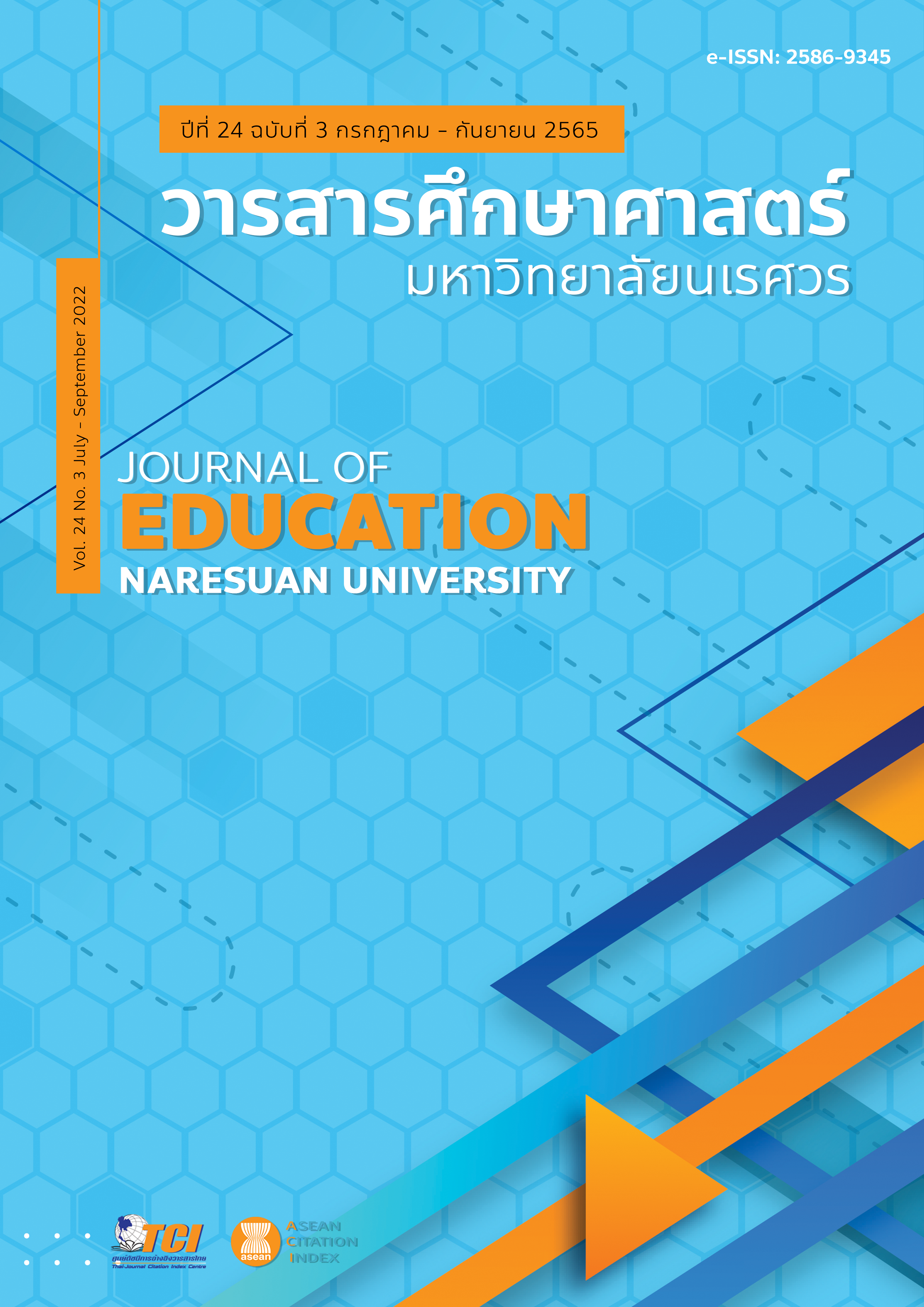ORGANIZING BLENDED LEARNING FOR LEARNING CENTER SUBJECT: APPLICATION OF ARTIFICIAL INTELLIGENCE IN THE INDUSTRIAL SECTOR การจัดกิจกรรมการเรียนรู้แบบผสมผสานสำหรับศูนย์การเรียนรู้ เรื่องการประยุกต์ใช้ปัญญาประดิษฐ์ ในภาคอุตสาหกรรม
Main Article Content
Abstract
The objectives of this research are 1) to create a model of integrated learning activities for learning centers subject: application of artificial intelligence in the industrial sector, 2) to comparison of learning achievement between before and after learning, 3) to find learning effectiveness index, and 4) to study students’ satisfaction. The sample group was 20 people who interested in the application of artificial intelligence in the industrial sector, using a random sampling method. The research tools are 1) the experts’ opinion evaluation toward to the integrated learning activities, 2) a model of integrated learning activities for learning centers, 3) the learning achievement test, and 4) the evaluation form of the learners’ satisfaction. The research found that: 1) activities and learning materials that created which combine of online learning and face-to-face learning. The results of the experts’ evaluation on the integrated learning activities model is appropriate at a high level. 2) The learners who learn by using the integrated learning activities for the learning center that created have higher knowledge with statistical significance at the level of .05. 3) The learners who learn by using the integrated learning activities for the learning center that created have higher learning achievement, 62.70%. And 4) the learners are satisfied on learning by using the integrated learning activities for the learning center that created was at high level.
Article Details

This work is licensed under a Creative Commons Attribution-NonCommercial-NoDerivatives 4.0 International License.
The owner of the article does not copy or violate any of its copyright. If any copyright infringement occurs or prosecution, in any case, the Editorial Board is not involved in all the rights to the owner of the article to be performed.
References
Ates Cobanoglu, A. (2018). Student teachers’ satisfaction for blended learning via Edmodo learning management system. Behaviour & Information Technology, 37(2), 133-144.
Bell, S. (2010). Project-based learning for the 21st century: Skills for the future. The clearing house, 83(2), 39-43.
Chin, C. K., Munip, H., Miyadera, R., Thoe, N. K., Ch’ng, Y. S., & Promsing, N. (2019). Promoting education for Sustainable development in teacher education integrating blended learning and digital tools: An evaluation with exemplary cases. Eurasia Journal of Mathematics, Science and Technology Education, 15(1), em1653. https://doi.org/10.29333/ejmste/99513
Hall, W., & Pesenti, J. (2017). Growing the artificial intelligence industry in the UK. Retrieved from https://www.gov.uk/government/publications/growing-the-artificial-intelligence-industry-in-the-uk
Keawmorakot, U., & Padungkan, Y. (2018). A study on strategy of condition and development guidelines to improve the skills of personnel in the systems integration for industry 4.0 case study in eastern region. The 11th Srinakharinwirot University Research Conference (pp. 765 – 775). Bangkok: Srinakharinwirot University. [in Thai]
Northey, G., Govind, R., Bucic, T., Chylinski, M., Dolan, R., & van Esch, P. (2018). The effect of “here and now” learning on student engagement and academic achievement. British Journal of Educational Technology, 49(2), 321-333.


